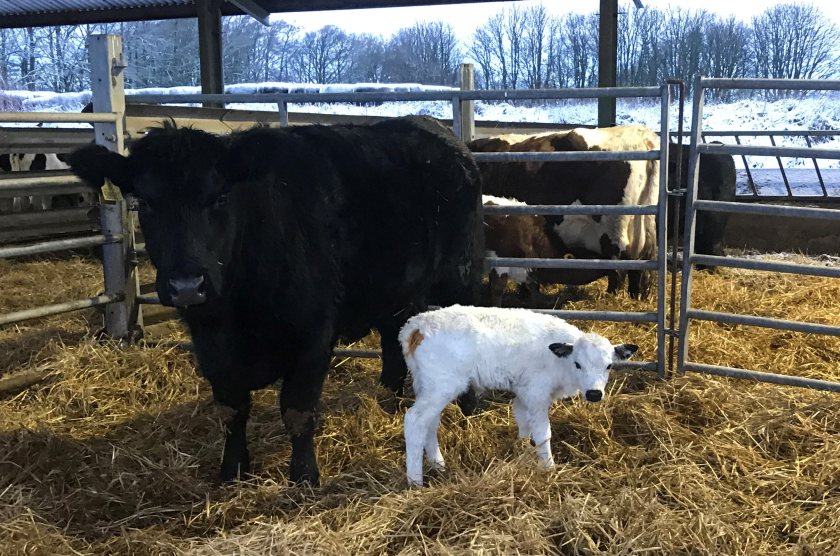
The birth of a female Vaynol calf through embryo transfer has brought new hope in the work to save one of the rarest UK livestock breeds.
The calf, called Snow for her white colouring and the conditions at the time of her birth near Edinburgh on 6 January, was born thanks to a cutting-edge conservation project.
Vaynol embryos were implanted in recipient Angus cows in a method that is mostly used commercially with beef and dairy cattle and has been used previously for conservation of rare Gloucester cattle.
The calf’s birth has saved the genetic line of a rare Vaynol cow which had struggled to reproduce, say project leaders Rare Breeds Survival Trust (RBST) and animal breeding specialists AB Europe.
RBST chief executive Christopher Price said: "Vaynols are wonderful primitive animals but supporting their survival is particularly challenging due to their semi-feral nature and modest fertility.
"They are an irreplaceable part of the UK’s heritage but the survival of the breed is also important in terms of the genetic diversity of cattle in the UK and guarding against future animal diseases.
"We hope that the success of this project can open a crucial new avenue for the survival of the Vaynol breed, and also pave the way for embryo implant work to provide a vital boost to other rare breeds too.”
With eight breeding females registered in 2019 and just three in 2018, the Vaynol is one of only five cattle breeds given ‘critical’ status on the RBST Watchlist.
When a breed’s population is so low, the birth of new females is vitally important to guard against inbreeding and to allow the creation of new herds.
Vaynol prospects have improved since the 1980s when there was just one herd remaining, but there are still only five herds and the breed needs significant support to ensure its survival.
AB Europe veterinary surgeon Gavin Tait said: “We were very pleased to support this important conservation work and ensure that a precious Vaynol bloodline is not lost.
"Persistence paid off with the birth of Snow following several previous implant efforts which failed to hold."
The birth of a second calf from the same RBST and AB Europe embryo transfer project is expected this summer.
